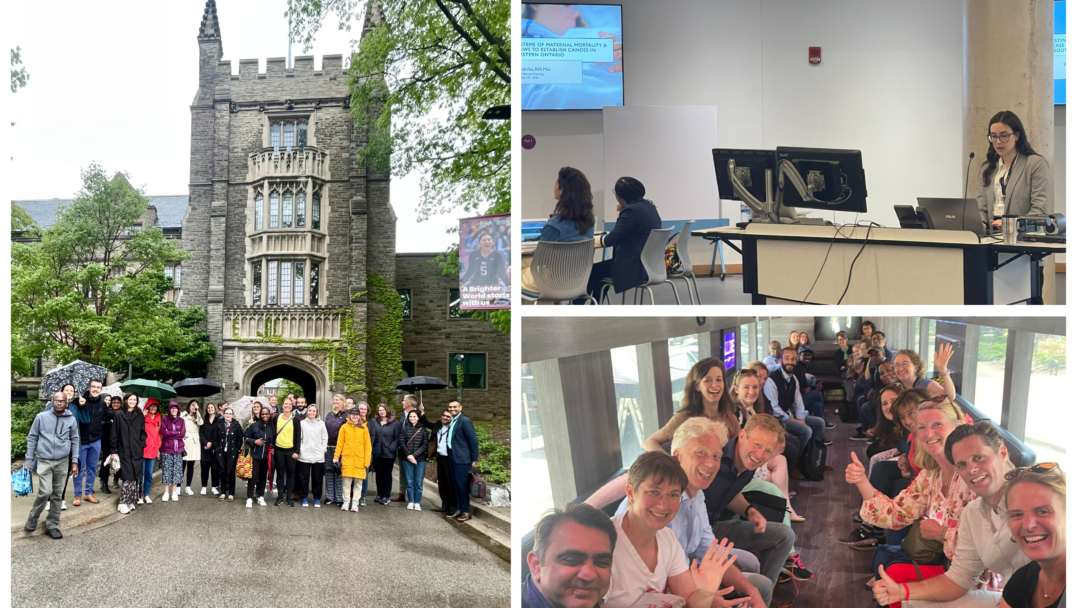Maternal health experts visit McMaster for an international meeting on obstetric survey systems to reduce pregnancy-related mortality and morbidity

The Canadian Obstetric Survey System (CanOSS) welcomed maternal health experts and trainees from around the globe to Hamilton for the International Network of Obstetric Survey Systems’ (INOSS) Annual Meeting.
Established in 2010, INOSS is a multi-national collaboration of organizations conducting prospective population-based studies on serious and rare illnesses in pregnancy and childbirth.
Over 30 INOSS members from 11 high-, low- and middle-income countries attended the three-day meeting, which focused on promoting co-operation and knowledge sharing among nations who have implemented or are in the process of implementing a national obstetric survey system.
Obstetric survey systems facilitate the collection of data related to severe maternal morbidity (SMM) and mortality. This data helps clinicians and researchers better understand SMM and develop measures to prevent severe illness in pregnant patients and reduce the short- and long-term impacts of SMM.
The meeting was the first to be held outside of Europe – a milestone for maternal health research in Canada, one of INOSS’ newest member countries. The meeting was made possible by a grant from the Social Sciences and Humanities Research Council, awarded to CanOSS co-lead, Dr. Rohan D’Souza.
Researchers from McMaster University’s D’Souza Lab – including Rohan D’Souza, Logan Barr, Rashid Ahmed, Paige Gehrke, Bronte Johnston and CanOSS co-lead Isabelle Malhamé of McGill University – highlighted the work they’ve been leading to develop CanOSS.
D’Souza says the meeting provided a unique opportunity to share challenges, successes and strategies for reducing SMM and mortality globally.
“We were honoured to host this year’s INOSS meeting and thank all those who came from around the world to share their expertise and insights. It was incredible to connect in-person with fellow INOSS members and explore ways we can collaborate to deepen our understanding of severe pregnancy complication causes and outcomes, and ultimately improve care for pregnancy persons and their families globally,” he says.
The meeting featured a series of presentations and workshops led by representatives from the Canada, Finland, India, Italy, Namibia, the Netherlands, Norway, South Africa, Sri Lanka, the UK and the United States. Discussions focused on issues of common interest, including data validation, methodology, ethics, data protection and patient and community engagement.
Post-doctoral fellows and graduate and medical students from various Canadian universities, including McMaster, shared snippets of their work.
In addition to leading several workshops, CanOSS co-lead Dr. Malhamé shared results of a scoping review and findings from the CanOSS feasibility study, which saw the CanOSS team gathering input from maternal health units across Canada on the leading causes of SMM, current modes of data collection and areas for improvement.
“We’re extremely proud of the work students and researchers are doing across the disciplines at McMaster to make CanOSS and the reduction of SMM a reality,” says D’Souza.
News“Together with our colleagues at INOSS and our collaborators in Ontario and across the country, it’s our goal to develop a survey system that meets the diverse needs of healthcare providers, pregnancy and post-partum patients in Canada.”
